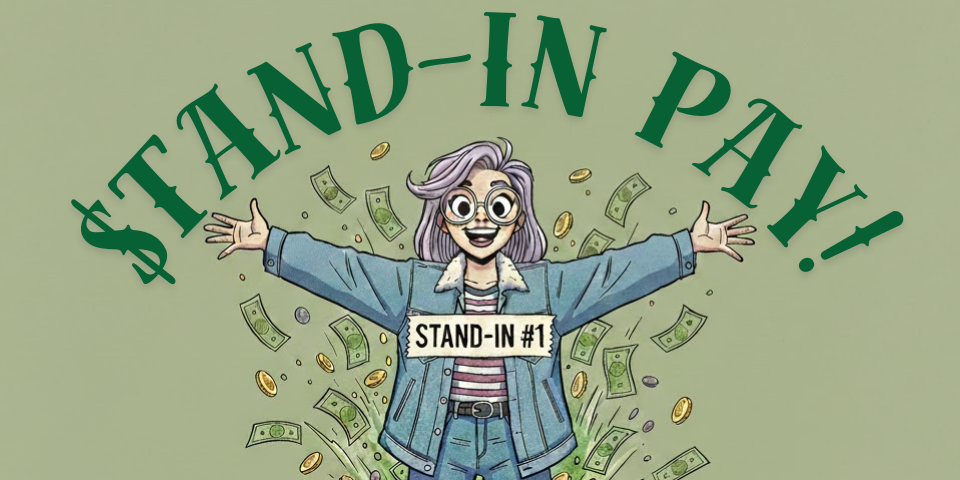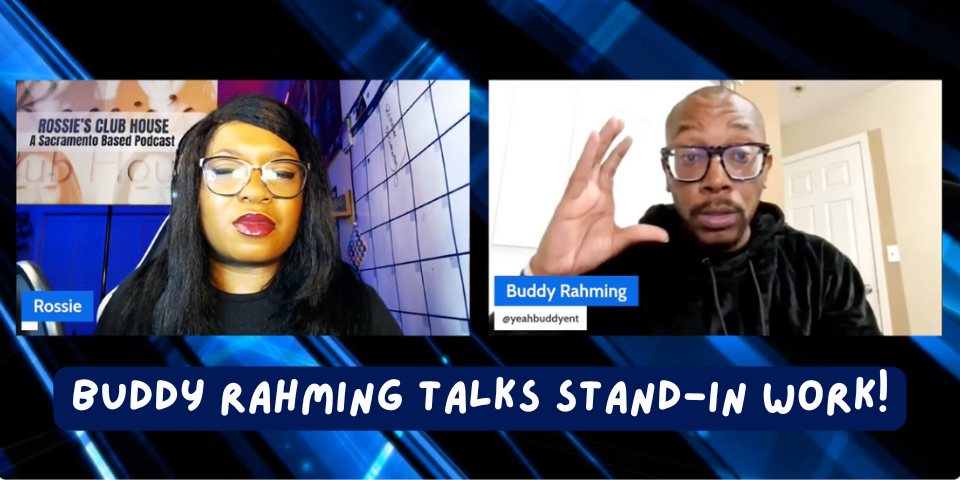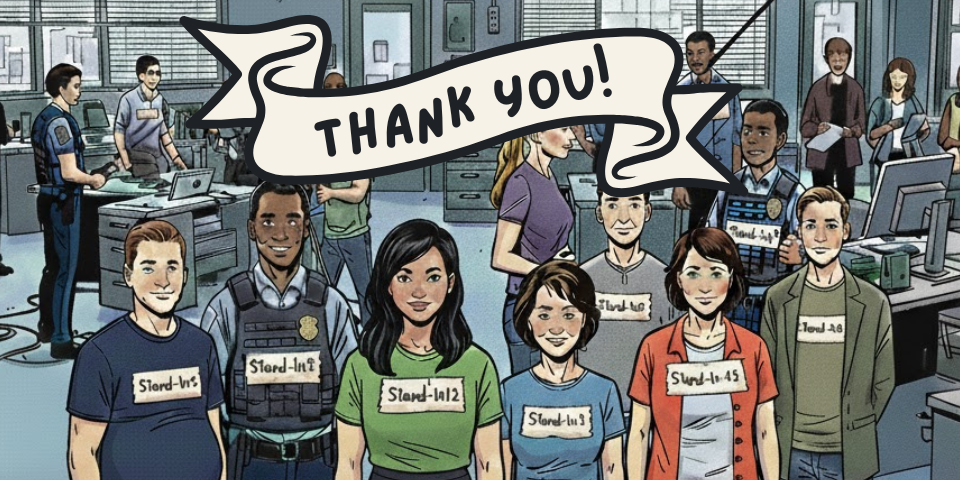One of the common, blanket pieces of instruction a casting director may tell a stand-in before a stand-in job is “Don’t talk to the actors.”
Experienced stand-ins might realize that that instruction might be a bit much, perhaps crafted more for inexperienced stand-ins who have never worked on a set and who might be starstruck to the point of making things awkward for the stand-in and the actor. Then again, experienced stand-ins may also follow that instruction, too. And some actors may actually request for people not to talk to them or even look at them — though that is probably quite rare to actually come across on a set.
So the question is, “How much chitchat with your principal actor is acceptable when you’re standing in?
I used to basically abide the teaching not to talk to first-team actors. But eventually, my first-team actors would talk to me. What do you do in that case? The conflict of interest is obvious: You’ve been told not to talk to actors, but an actor talking to you might expect an answer to a question or a little conversation with you. And chances are, that actor has no idea you’ve been instructed not to talk to the actors. It may be more awkward not to respond to a direct question seeking your answer than to talk to the actor! In fact, one actor for whom I stood in for years apparently asked why his stand-in doesn’t talk with him! (I started talking to him more after then.)
Eventually, for myself, the balance was something like this:
- Cordial hellos, thank-yous, and you’re-welcomes are completely acceptable when during the transition between second team and first team.
- Talk to your actor about blocking changes, safety issues, or other things you experienced as a stand-in insofar as it is appropriate for your actor to know them for a scene. Don’t do this all the time, but it’s okay to do this every once and awhile. That’s being purely professional and within most people’s expectations of reasonable.
- If the actor is friendly and open, it’s okay to have light conversation with the actor on a matter, especially if other crew members do so.
- Try to avoid any heavy or deep subject that would take the actor off concentrating on the work at hand.
- If the actor has a difficult scene or appears to be concentrating, avoid talking with the actor at all during that time unless absolutely necessary.
- If you find yourself starstruck, it’s probably not the best time to talk with the actor. Wait until you calm down a bit. Stick to the work at hand, and if you feel compelled about the actor’s prior work, try to wait for another time on another day. You may realize you’re starstruck when you feel nervous or excited and irrationally compelled to share something with the actor without any particular prior relationship with the actor.
- And if you have a great relationship with the actor already, none of this advice really matters. Instead, follow your impulses based on your relationship with your actor.
But that’s just I — and general principles at that. What about you?
How do you handle chitchat with your first-teamers? Share your personal principles in the comments below!
Discover more from Stand-In Central
Subscribe to get the latest posts sent to your email.







Leave A Comment